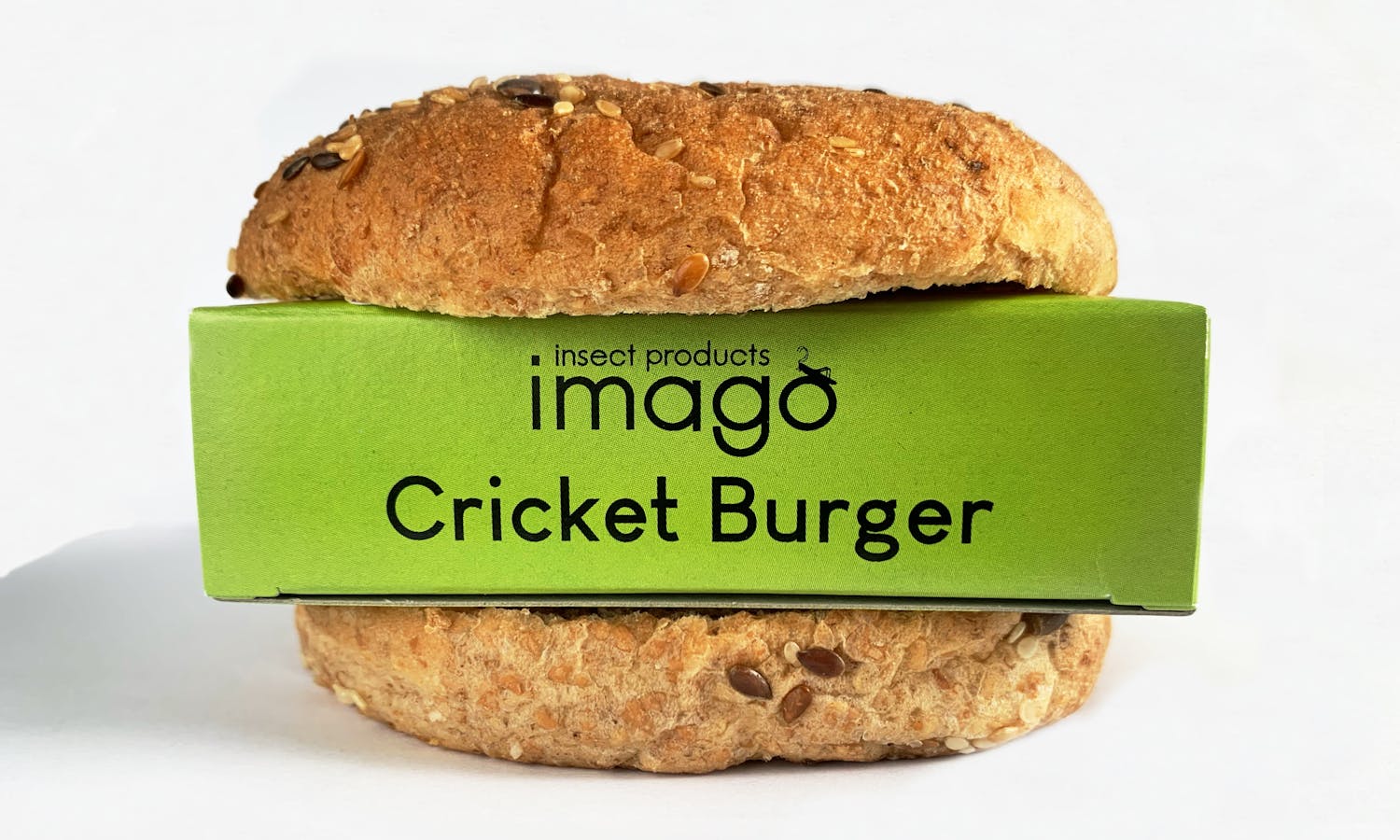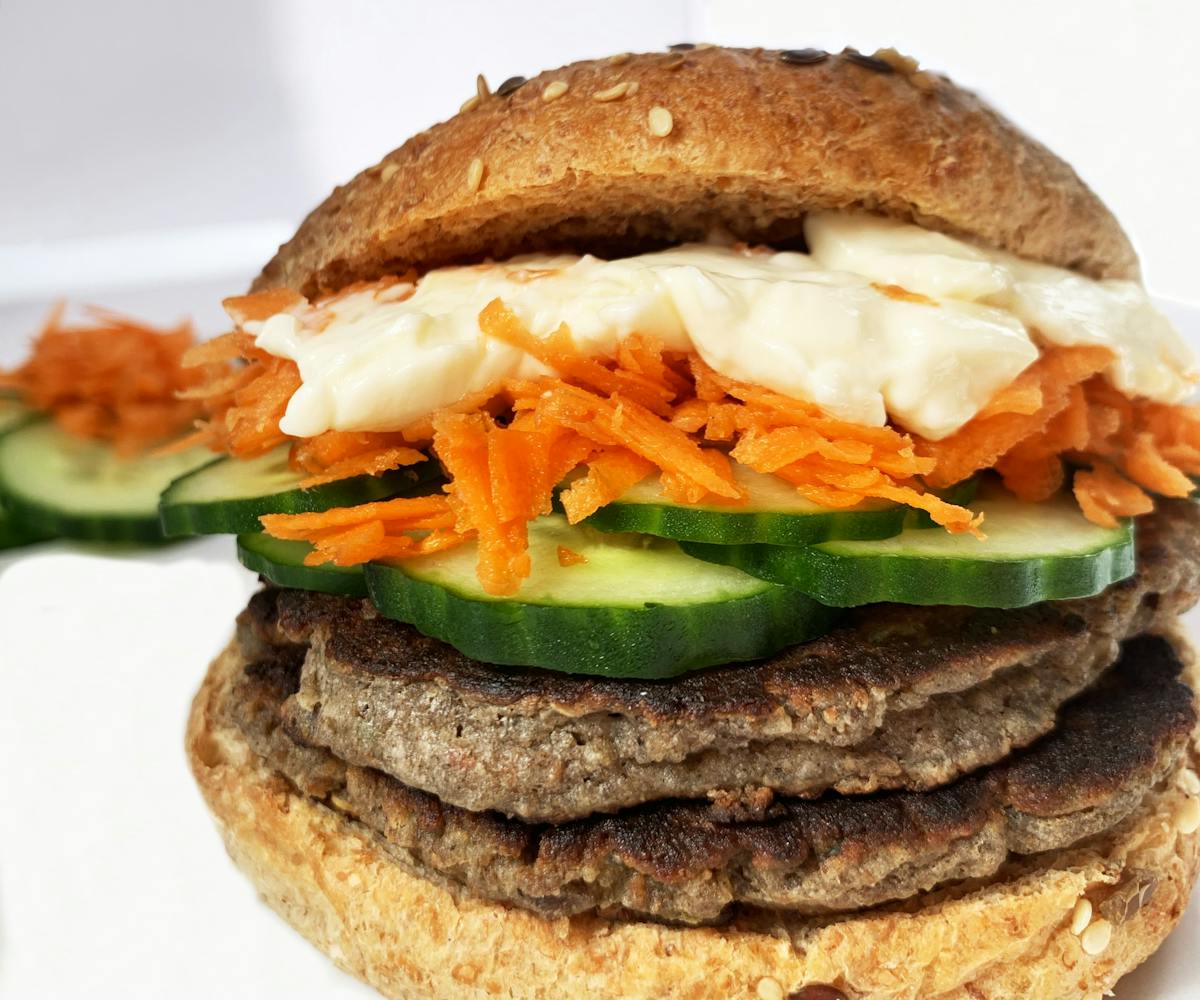Tested: Imago Cricket Burger
6 June 2020
3 min read

Usually, we would start off with some nutritional facts about a product we review, to then delve into the taste. But let's do it a little different this time. After all, nobody cares about the nutritional values while eating a burger. It's all about the taste and the "burger-experience". So this time, we divide our review into things we enjoyed and things we didn't: the highs and lows. Even though the saying starts with the highs and ends with the lows, we prefer the bad news first to finish off positive.
The lows
Tastewise, we don't have any complaints (as you will read later). Ingredientwise, we have two: palm oil and palm fat, being number one and four on the ingredient list of the cricket burger. In case you hadn't noticed yet, which is hard as every website talking to you about edible insects mentions it, the most important argument to include edible insects into our nutritional plan is the environment. Insects are, in many ways, so much more sustainable than other sources of protein - we apologize for mentioning it again.
Palm oil and fat, on the other hand, play a massive role in the current deforestation that is going on worldwide [1, 2]. To make room for the palm plantations, big pieces of forest are first cut down. Combining edible insects and palm oil/fat, thus, is like putting ketchup on your pasta: unless there is absolutely no alternative, please don't.
After being in touch with Sven (the founder) from Imago, they explained why they currently use palm oil in (some of) their products. First of all, palm oil is characterized by the high yield relative to other vegetable oils. Others (e.g. sunflower or rapeseed oil) require up to nine times more land than palm oil for the same amount of oil [3]. It is also highlighted on the products that the palm fat and oil Imago uses come from a sustainable plantation. This is a good start of course, although Greenpeace mentions sustainable palm oil is actually not so sustainable at all yet [4].
We would like to thank Imago for their transparency and explanation as to why they have chosen to use palm oil.
The highs
Before we delve into the taste, a little bit about the product you get. One package contains 100 grams of the cricket burger mixture. We expected a well-formed patty we simply had to throw in the pan. The mixture, however, is powdered and only needs to be combined with water. After adding water and waiting for 10 minutes, you can use it in any way you like. Make one fat burger patty, various small ones to stack, roll some meatballs, or be even more creative.
Depending on the size of the shape you've created, the burger is done in a matter of minutes. All in all, unless you cannot measure 100 millimeters (life can be hard sometimes) you cannot do anything wrong preparing it and you can unleash your creativity!
Then onto the taste... We consider ourselves primarily entovegans and have tried many vegan/vegetarian meat-alternatives. There have barely been any that came as close to the taste and structure of actual beef as the Imago Cricket Burger and are packed with paprika and onion flavours. The patties we made reminded Tom of his dad's meatballs and these were definitely not made out of cricket.

- WWF (January 17, 2020). 8 THINGS TO KNOW ABOUT PALM OIL. Accessed June 3rd, 2020 at https://www.wwf.org.uk/updates/8-things-know-about-palm-oil
- Alaine Johnson (April 30, 2020). Why Is Palm Oil Such a Problem Now? Accessed June 3rd, 2020 at https://sentientmedia.org/why-is-palm-oil-such-a-problem-now/
- Hans Nicholas Jung (July 2, 2018). What’s worse than palm oil for the environment? Other vegetable oils, IUCN study finds. Accessed June 7th, 2020 at https://news.mongabay.com/2018/07/whats-worse-than-palm-oil-for-the-environment-other-vegetable-oils-iucn-study-finds/
- Richard George (November 1, 2019). 5 problems with ‘sustainable’ palm oil. Accessed June 3rd, 2020 at https://www.greenpeace.org.uk/news/5-problems-with-sustainable-palm-oil/
